Wow! German Shepherd puppies! They are awesome little critters that arrive with a bundle of challenges that might not be seen in a puppy of another breed. That being said, each puppy, whatever his or her breed, is still an individual. Each one can offer distinctive challenges.
There's nothing more fun and exciting than a new and cuddly, fuzzy and sweet little pup starting life with an eagerness that is truly catching. These puppies are so ready for words of encouragement and direction from us, their daily teachers. Raising a puppy is truly a gift as we lead them through those early months of schooling, setting the stage for their life's work.
The learning possibilities that any puppy presents when they first arrive in their new home are endless. Each pup is an amazing little love-bug with a clean slate going forward and so very ready to learn. Maybe the German Shepherd (GSD) pup is a little slower to mature, but their intelligence may, at times, trump the other breeds.
Robin
I remember the first little GSD that entered our family's life in preparation for a life as a guide dog for the blind. Robin was 10 weeks old when our young daughter encouraged her to take that first step into our house. Any house full of new and unfamiliar objects and sounds can be overwhelming for a young pup just out of life in a kennel. So started a new chapter for both Robin and our family.
Robin began as our nine-year-old daughter's 4-H project. Because it was our daughter's special project, the rest of the family stepped back as she amazingly handled 90% of the work with Robin. Each morning began no later than 6:00 a.m. with the routine of potty training outside, rain or shine. Teaching Robin to sit and wait before munching down her meals also became part of that daily routine.
Robin's biggest challenge was that she was a chatterbox, very vocal like many GSDs. So one of her early lessons was to control her desire to vocalize. The ability to be quiet is required behavior for eventual work as a guide or any service dog. Robin would soon learn that she would be showered with wonderful praise when she was quiet as well as when she exhibited good and calm behavior out and about in public and in our home. Great behavior in the home is a high priority for a service dog.
Another challenge for Robin was her prey drive, or desire to chase moving things. At the time that Robin was in our home, we had several sheep. Robin thought those sheep were her personal property and seemed to believe that she must keep them under her control. Robin's growing maturity, coupled with patience and persistence on our part along with positive reinforcement, helped her to settle down and understand that such behavior was unacceptable. Robin had to learn that our family members were her leaders and her teachers. Prey drive is a natural instinct because dogs are predators and hunters. But is that a good instinct to encourage in any dog, particularly a future service dog? Of course not! Disastrous is a word that quickly comes to mind.
Such prey behavior in any service dog would be reason for dismissal from the program. It could be life-threatening for the partner of a guide or other service dog. Prey drive can be redirected into play activity for appropriate situations. Playing hide and seek with treats or something that encourages the dog to focus that prey drive in a positive direction is a goal for the puppy raiser. Patience and the need for the teacher to be calm and assertive was extremely important.
For Robin, redirecting her focus and showering her with praise for the appropriate behavior was successful. Again, each pup is an individual and may need different approaches and rewards to help them succeed. It was critical, however, that Robin knew that we were the teachers, her leaders, and that we presented ourselves in a calm and confident manner. We also always remembered to include patience, persistence, praise, and abundant love in our daily routine.
Robin was our family's first experience at raising a guide dog puppy, and our first time with a GSD. The biggest lesson we learned was the importance of sharing the responsibility of handling the puppy, including feeding, training, and socializing. Why would that be important? Read on!
Robin's eventual training in harness at the guide dog facility was very successful except for one very significant and negative element. Her separation from our daughter proved to be too much for Robin and eventually that led to her career change and release from harness training. The strong bond that Robin developed with our daughter over the 16 months she was in our home proved to be too strong in the final analysis. This experience changed our approach with other GSD pups, as well as all the breeds we raised in the future.
Over the years we raised five GSD pups, four female and one male. Each one was very much an individual but all showed similar shepherd characteristics, including the love of vocalizing, a high degree of intelligence and independence, and varying degrees of stubbornness. Our daughter continued as the primary puppy raiser for a few years, but we had learned the importance of "all hands on deck." We all took our turns at feeding, relieving, training, and socializing. Of course, it was always easy to share in loving the pup. That was natural for all of us from day one with Robin and all the pups.
Bev
Bev was GSD puppy No. 2. She struggled with allergies, but was a very outgoing and loving dog who was better adjusted to accept separation from our daughter. A fun story about Bev is how she could entertain herself. At that time, we were allowed to play fetch games with the pup, including playing with tennis balls. Bev would take a tennis ball, lie down at the top of our basement stairs, and drop it down the stairs. She would continue to lie there and watch it bounce, step by step, to the bottom. Then she would jump up and race down the stairs to retrieve it when it reached the bottom. She would then promptly return to the top of the stairs with the ball in her mouth, lie down, and drop it again, repeating the same activity over and over again. It was comical to watch. Since that time it has been shown that regularly sized tennis balls can actually get caught in a large dog's throat and now, no tennis balls are allowed as part of the toy box. Bev was career changed due to health concerns.
Apple
Apple was GSD puppy No. 3, and what a love she was. She was our fluffy double-coated girl, appearing like a little teddy bear with that long hairy coat of fuzz. She never outgrew it, just enjoyed the glory it brought to her as people raved over her beauty and classy appearance. She was a fun-loving dog, immature for longer than the others and a rather nosy busybody of a girl, always checking out everything going on around her. That would prove very beneficial to her new partner.
Apple graduated as a guide for a gentleman who was both blind and hard of hearing. This man would use Apple's constant curiosity to locate the direction of people he was talking to. He would place his left hand on the top of her head and determine a person's location by the direction of Apple's head. His hearing loss made it difficult for him to determine direction of sound on his own.
One of Apple's more memorable activities as a pup was as an escape artist. She learned how to use her nose to open the gates from the backyard. Luckily, she only did that when we were working in the front yard. Once we caught her in the act, we quickly added locks to the gates. No doubt, she was highly intelligent. We learned we needed to be several steps ahead of her, or she could easily outsmart us.
Asia
The fourth GSD pup to join our family was Asia. Asia grew to be a spectacular and stately shepherd who carried herself like a champion. Affectionate, calm, and obedient, she could also play with the best of them. She, like all our GSD pups, was a little slow to mature. Asia loved to be outside more than any other pup we had raised and showed an unusual love of the water, more like what you might expect of a Labrador or Golden Retriever. It was fun to watch her play in the water of our little wading pool. Her love of the outdoors was year-round, including the cold of winter and the piles of snow during and after a big snowstore.
Asia went on to graduate as a guide for a wonderful woman from Utah. Her life as a guide was extensive and continued into a wonderful life of retirement with her partner.
Jad
The fifth and last GSD pup that graced our home was a most special guy, Jad. Jad was the only boy of all the GSDs we raised. Jad's notable characteristic was his large size and love of hard play. Not all our dogs were excited about playing with Jad. He played to win, while not ever being an aggressive or mean dog. He just never knew his own power and strength.
Jad's strong bond with his trainer at Guide Dogs for the Blind eventually led to his career change, due to separation anxiety after his trainer had to move to another group of dogs in training. Jad was designated to wait for his new partner's arrival on campus in order to train together before graduation, but Jad never made it to that graduation. He was career changed and we welcomed him home to become a well-behaved and deeply loved family pet.
Several common elements were present with each GSD pup that we raised. They were vocal to one degree or another; slow to mature; and formed a very strong bond with the family and their special person. They were highly intelligent, social, cooperative, quick to learn, very responsive to verbal praise, confident, eager to please, and had a high but controllable energy level.
I know Amie and Matt are very much up to the task of raising a GSD pup. It appears that little Patrick is already showing that intelligence, confidence, and love of socializing. Time will tell how quickly he matures, but in time, he too will hopefully mature as needed to become a great guide dog at Guide Dogs of the Desert.
Go Patrick,
Alice
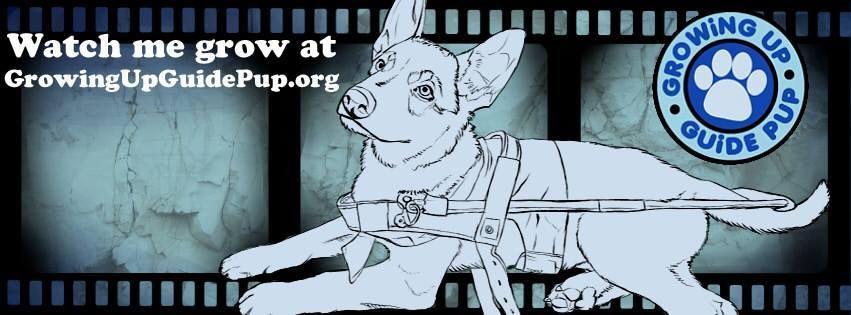
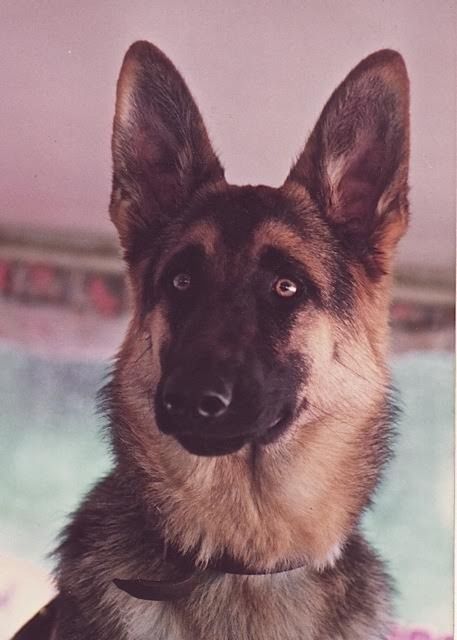

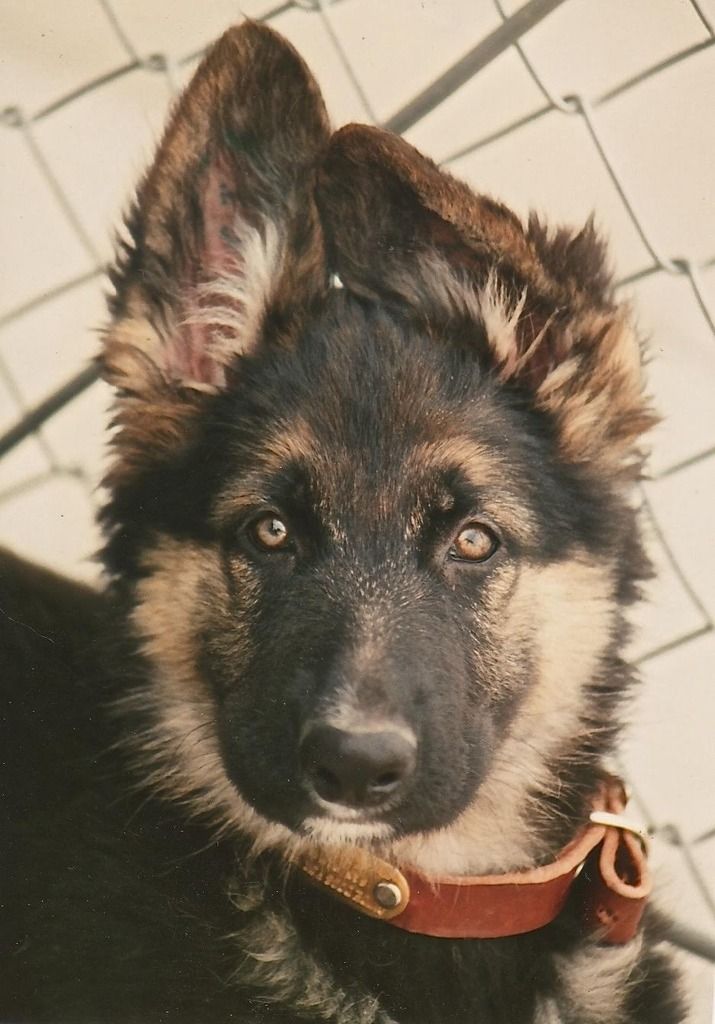
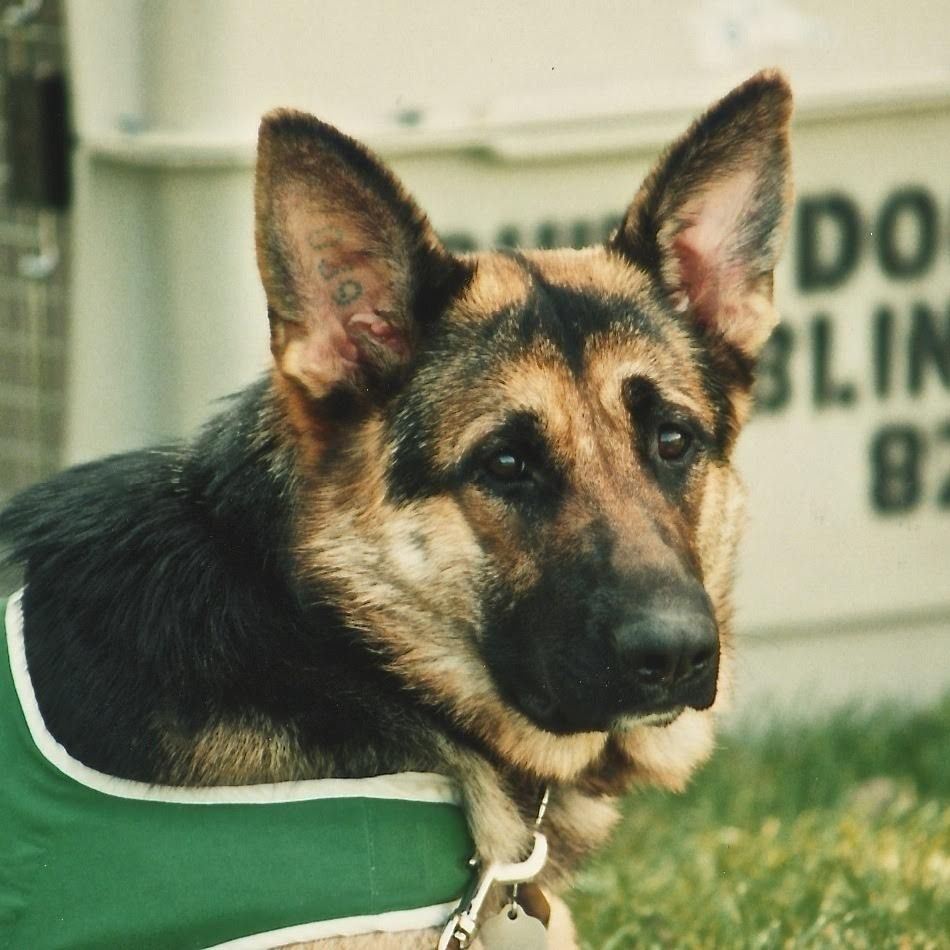
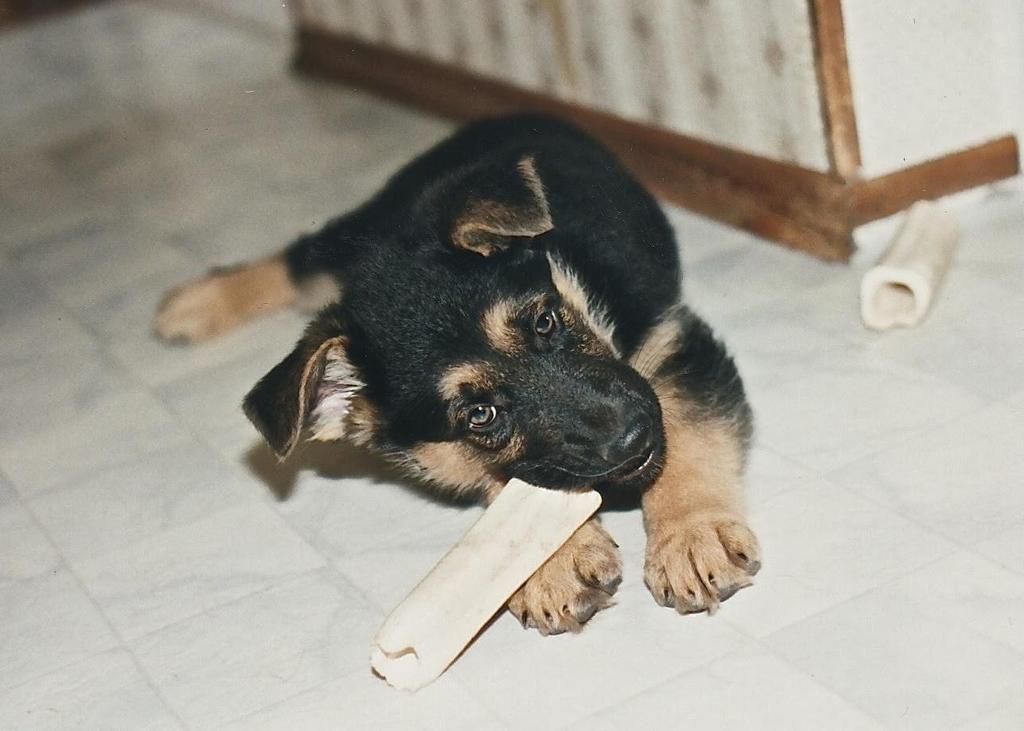
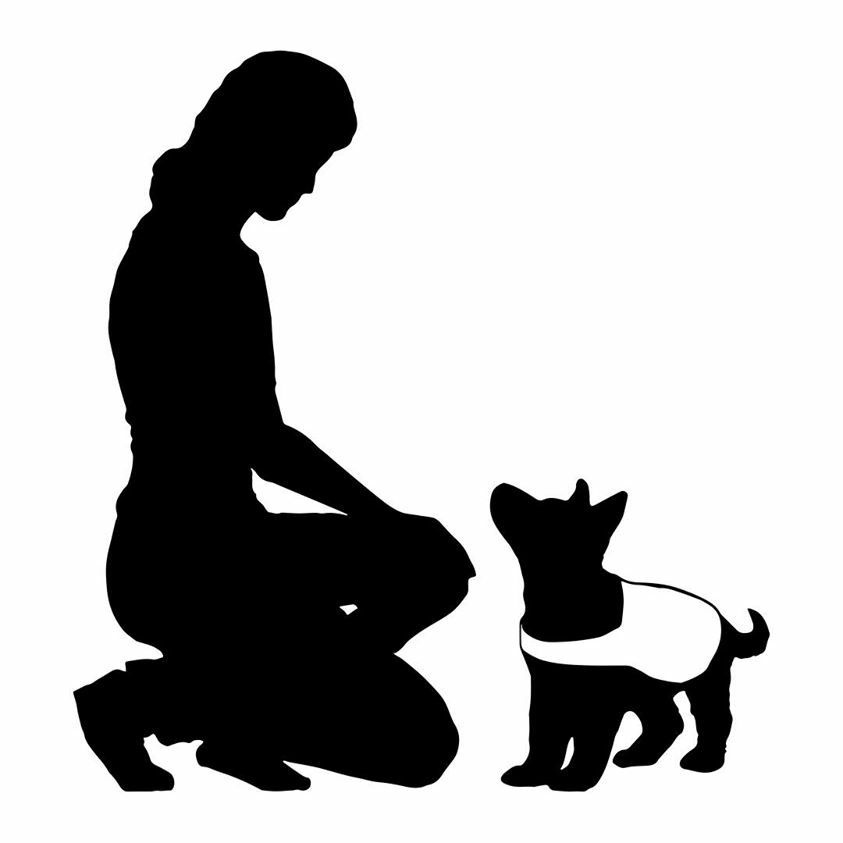
good for you and your family. Thank you for the very nice article. It takes a lot of love, faith, and sacrifice to raise a puppy for someone else.
ReplyDelete